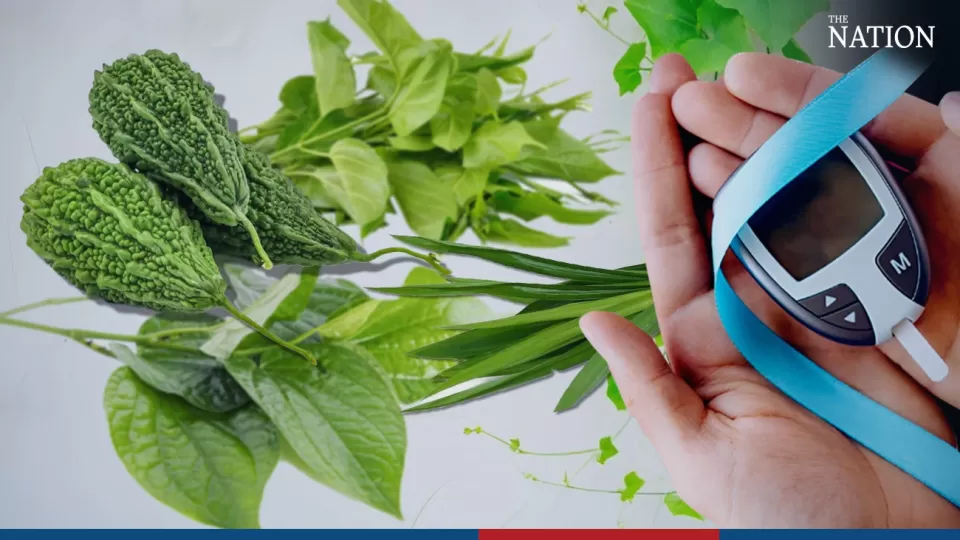November 22, 2023
BANGKOK – Diabetes, stemming from pancreatic and insulin dysfunction, manifests in the form of high blood sugar levels with symptoms like nocturnal urination, increased hunger, tingling extremities and slow healing.
If the condition worsens, it may lead to worsened eyesight and greater susceptibility to infections.
Traditional Thai medicine takes a holistic approach to diabetes care, focusing on dietary adjustments to restore bodily balance.
The Thai Traditional Medicine Department advocates reducing starch and sugar intake to manage blood sugar levels. It also recommends the consumption of local vegetables known for their sugar-regulating properties, such as:
• Mara Khinok (Bitter Gourd)
Despite its bitter taste, the vegetable contains charantin, a substance that helps reduce blood sugar levels. The bitter gourd is also believed to alleviate fever and promote appetite. It can be added to dishes or used to make smoothies, while its bitterness can be pleasantly tempered.
• Tamleung (Ivy Gourd)
With a cool flavour, ivy gourd’s leaves and stems contribute to blood sugar regulation. Nutritionally rich, it’s a versatile ingredient in soups, curries and more.
• Toeyhom (Pandan)
Known for their sweet aroma, pandan leaves and roots are not just for fragrance but also for diuretic and blood sugar-reducing properties. Normally used in traditional desserts, pandan-infused water is also very refreshing on hot, sunny days.
• Chiang Da (Gurmar)
Native to northern Thailand, gurmar is usually brewed into tea and is believed to aid in reducing blood sugar.
• Chaplu (Wildbetal Leafbush)
The slightly spicy wildbetal leafbush relieves intestinal gas, promotes appetite and contributes to blood sugar regulation. Avoid excessive consumption as it may contribute to dizziness, formation of kidney stones or urinary tract issues.
Two more types of vegetables also have reports on their blood sugar-reducing properties
• Cha-om (Climbing wattle)
Packed with flavonoids, cha-om is believed to play a role in blood sugar control.
• Ta-Krai (Lemongrass)
Beyond its aromatic appeal, lemongrass is believed to contribute to lowering blood sugar.
Lifestyle measures
Amid these dietary suggestions, regular exercise is key to maintaining a strong, healthy body. Adequate hydration (at least eight glasses of water daily) coupled with ample rest and sleep, is vital for overall well-being.
Individuals with pre-existing health conditions are encouraged to undergo regular health checkups, ideally on an annual basis.
By embracing the wisdom of traditional Thai medicine, adopting natural remedies and adjusting their lifestyle, people can manage diabetes effectively.


